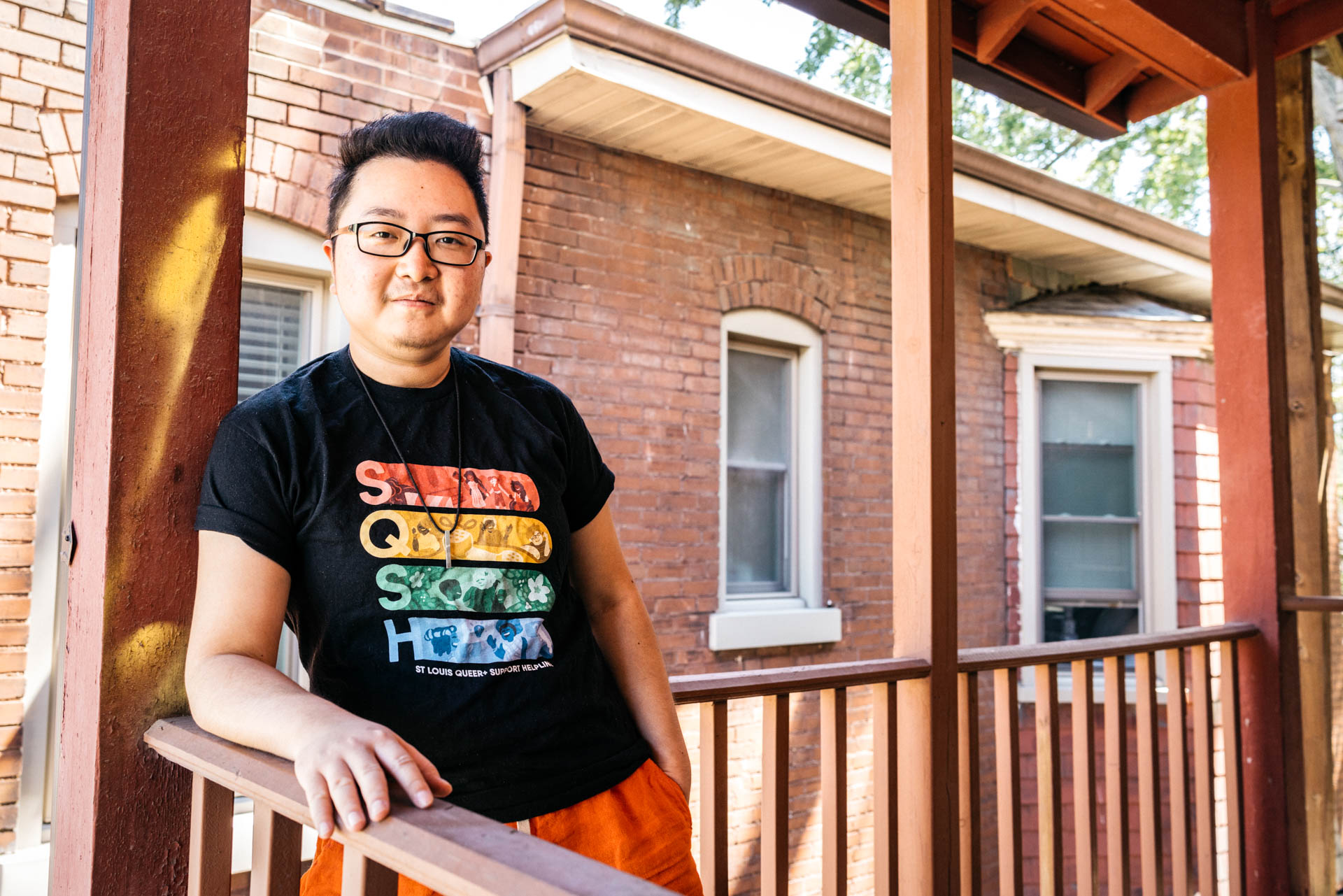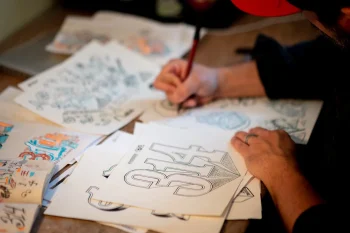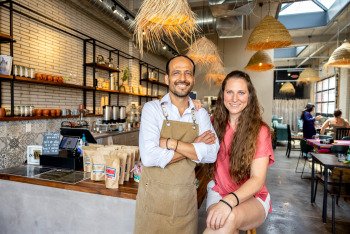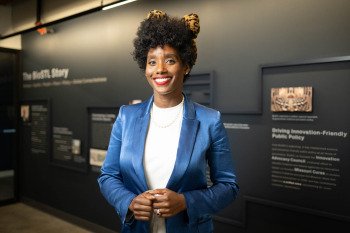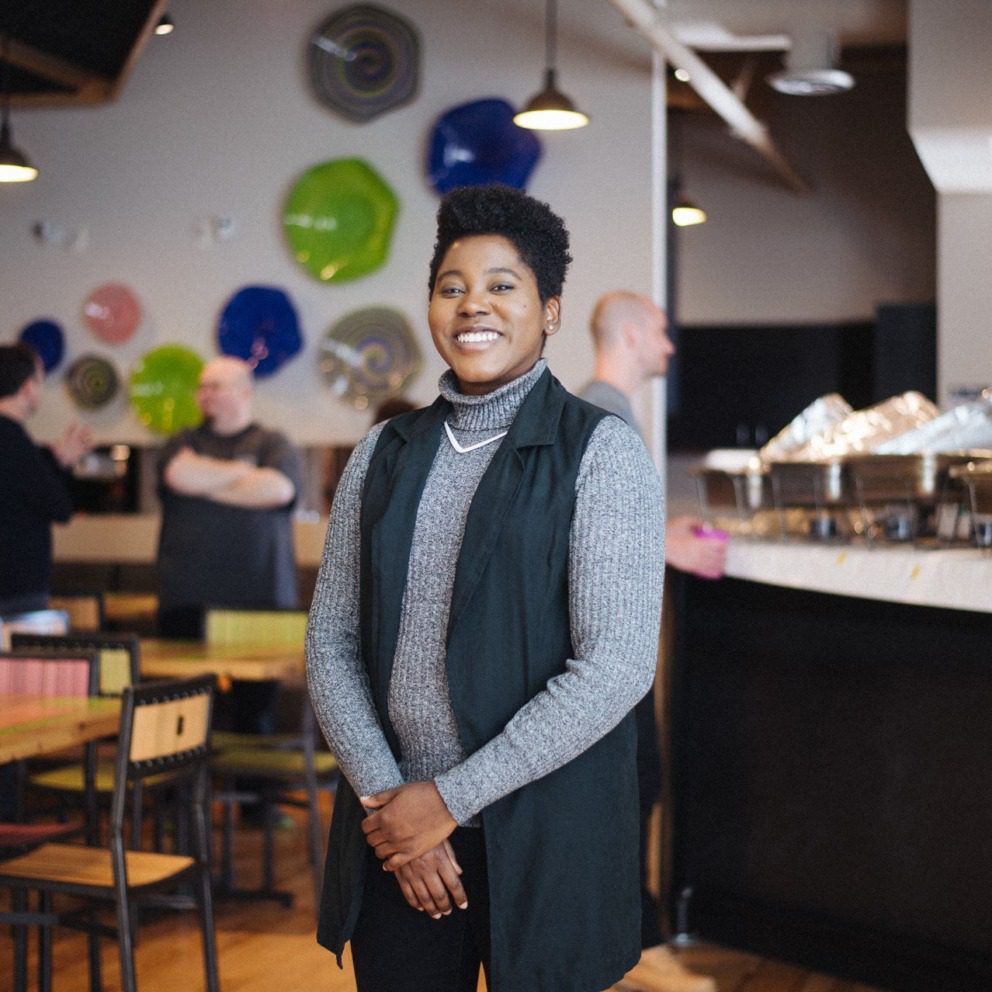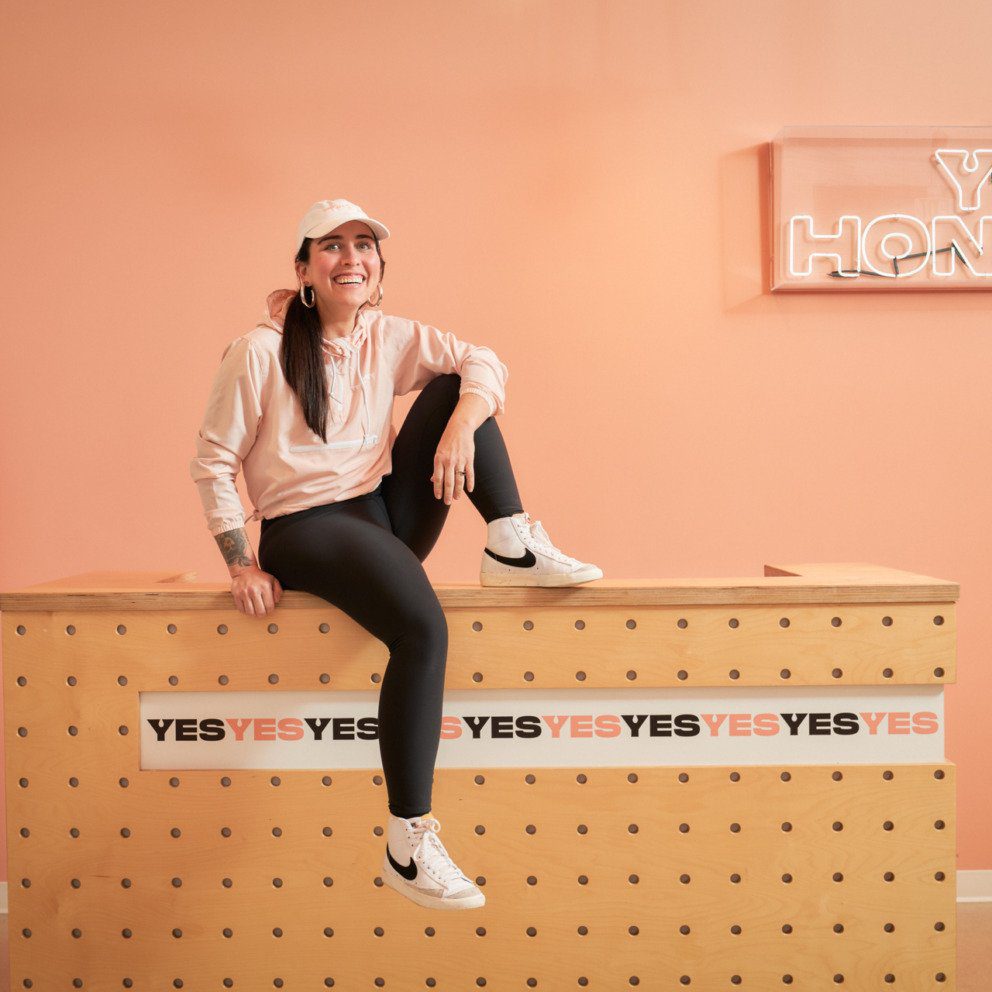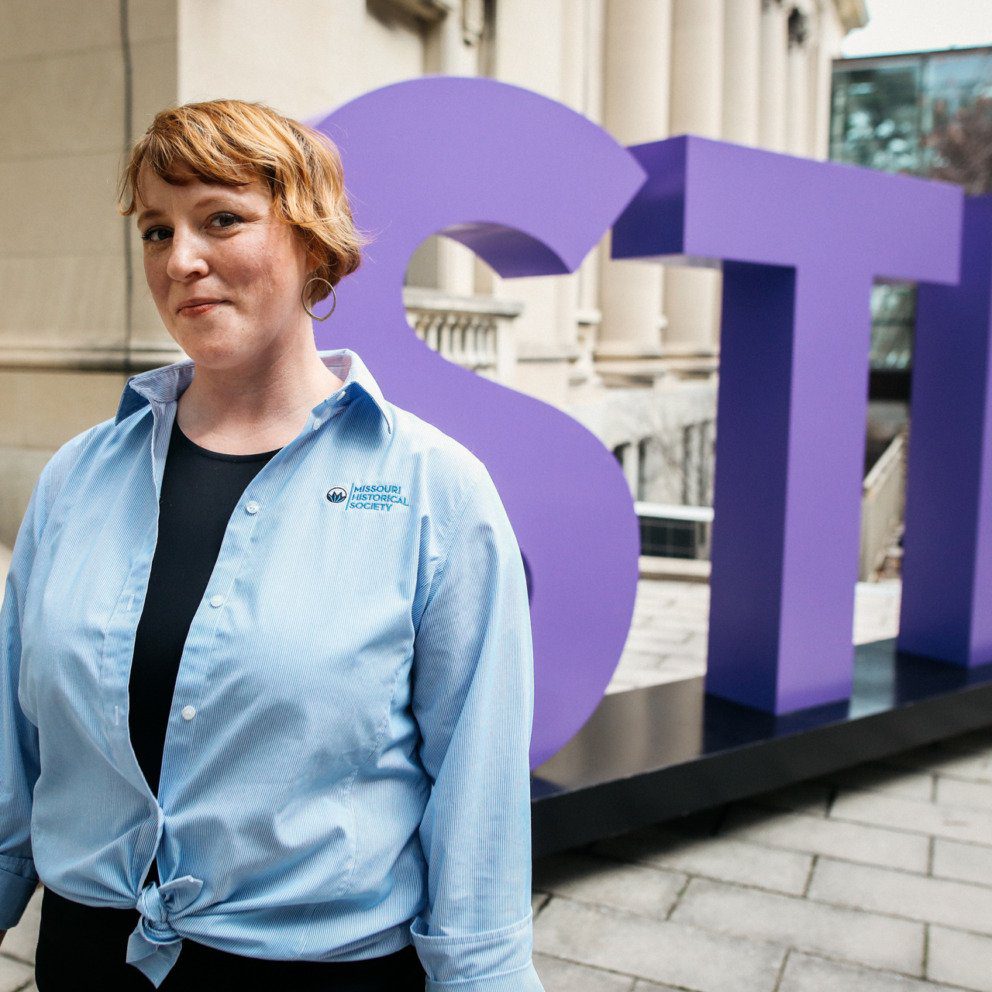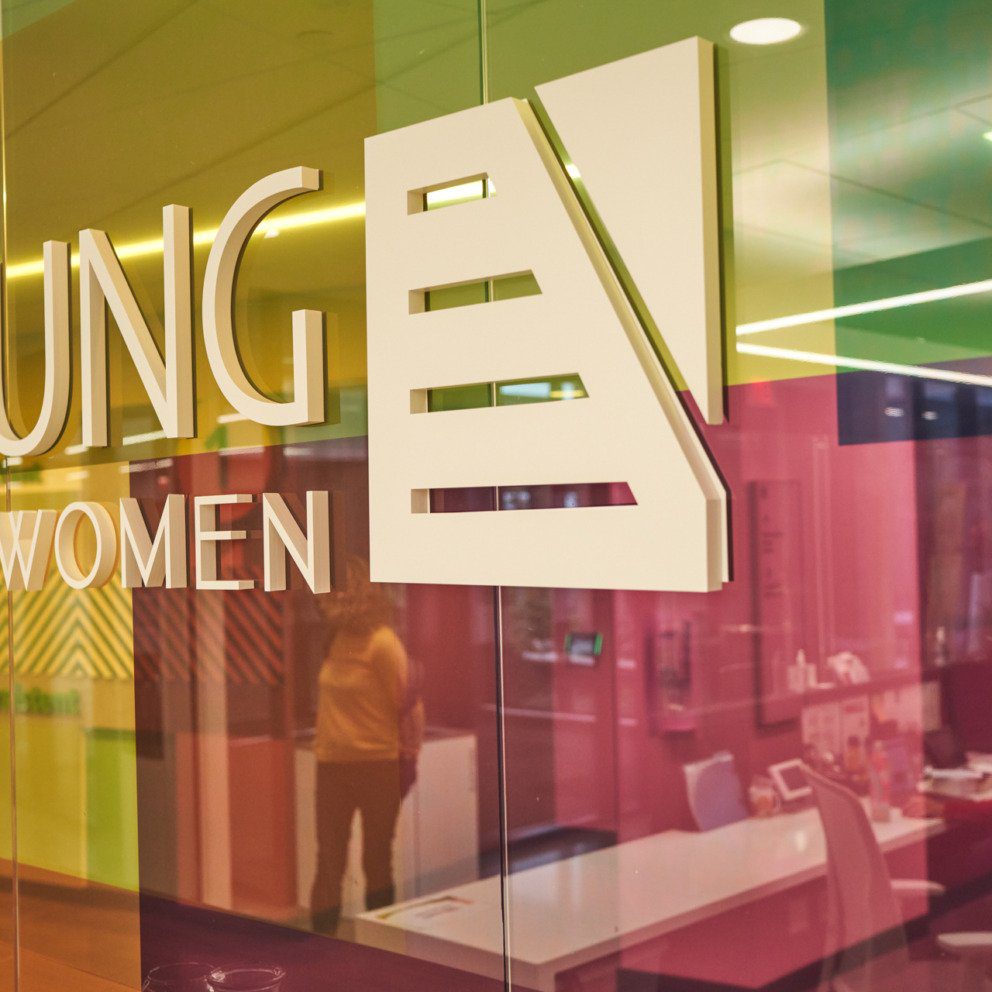A Healing Helpline
St. Louis Queer+ Support Helpline offers identity-affirming resources for the region’s LGBTQIA+ community.
Luka Cai remembers the moment when the need for a St. Louis-based LGBTQIA+ support line first struck them. It was in 2019, during a vigil and march on one of the city’s interstates to remember the trans lives lost to suicide that year, a bitterly cold day that was juxtaposed against the hot candles they and their peers held to represent those who were no longer with us. As the liquid wax dripped down from the burning candle and onto their boots, Cai felt sadness at the weight of the moment — but inspired by the power of collective action.
“Seeing trans people die by suicide in St. Louis who were close to me was the most stark representation of the oppressive challenges our community faces, that people would prefer not to exist in the society we live in than be trans, especially Black and brown trans people,” Cai says. “This action (the vigil and march) was really impactful, because it felt so empowering; this was an otherwise dangerous situation that individual people could not do on their own, so I saw the power of collective action — of people coming together.”
That realization led Cai and their colleague, Riott, to co-found the St. Louis Queer+ Support Helpline, or SQSH, as a resource for the area’s LGBTQIA+ community to receive identity-affirming support and resources. Originally founded as a peer support helpline in June 2019, SQSH’s work has grown to include advocacy to address the underlying causes of the increased rates of violence; discrimination; substance use; insecurity in employment and housing; and disparities in medical, mental, and sexual health the area’s LGBTQIA+ community faces.
Although that 2019 vigil may have been the catalyst for SQSH, Cai’s deeply personal journey to co-founding the organization goes back much further — all the way to their childhood and young adulthood in Singapore. Cai describes the nation’s culture as critical and hostile to LGBTQIA+ persons, which was confirmed to them when they came out to one of their favorite teachers in high school and were met with an unexpected reaction.
“She told me, ‘Thank you for telling me. I don’t blame you, but I think you are going to hell.’ It was very impactful,” Cai recalls. “It’s hard to describe what it’s like to grow up in a culture where this is the norm. There is a lot of internalized queer and transphobia, and even friends tell you that they think being trans is a mental health disorder or mental illness. There’s a lack of exposure to positive relationships with queer people, so it’s a negative cycle that feeds on itself.”
Cai dreamed of leaving Singapore for a more queer-affirming place, and college in the United States provided that out. In 2016, Cai arrived at Washington University in St. Louis filled with hope and idealism. They soon learned, however, that on a national stage, anti-queer, anti-trans, and anti-Black sentiments existed in America as well. It made Cai realize that changing minds might not be as easy as increasing exposure to LGBTQIA+ persons and issues — something they learned from activists on the frontlines of the Ferguson uprising, whose experiences Cai would draw upon when co-founding SQSH.
“Everybody’s political beliefs come from somewhere — their lived experience, something they’ve read, the opinions of people around them,” Cai says. “When I got here, I was much more idealistic and thought that if only people were exposed to more diverse perspectives, surely empathy would kick in. Now I am a lot more cynical, because it’s hard to change people’s minds when they have been socialized in a certain way. I’ve witnessed that for myself and have seen how long it takes to change people’s minds. Sometimes it never happens.”
Cai could see their peers in crisis and felt called to do something about it, even as they weren’t sure what their role should be. A self-described introvert, Cai had always considered activists to be outgoing, charismatic leaders inspiring others to follow them. Cai, on the other hand, liked to take their time to process things so that they could act more intentionally. This often led them to roles in the background of the movement, doing things like running logistics or scheduling meetings for actions that others would lead. However, when they started thinking about peer-to-peer counseling services, it made them feel that there was another way to have a positive impact.
Cai never imagined how deep of an impact that would be. Originally, they launched SQSH as a 50-hour, summer-long training cohort for the St. Louis queer community that would focus on peer counseling within a social justice framework. The idea was that peer counselors could train in realistic scenarios and apply the skills they learned, which ultimately resulted in the launch of the organization’s helpline that August.
Although they received their first call within an hour of the line going live, Cai and their cohorts were initially discouraged by the response. They knew there was a need for these services, so it wasn’t a matter of demand, but rather a lack of established trust within the area’s activist and LGBTQIA+ communities that would need to be built over time.
“For the first two or three years, it was very difficult, but also understandable, too,” Cai says. “I was a young person, an immigrant, coming and saying, ‘This is a resource we need.’ Something like this takes a lot of buy-in, and sometimes there is this culture where if you haven’t lived here for 10 years, people don’t trust you. And that’s understandable. It’s an uphill battle, and I felt like it was my responsibility to prove myself — not out of wanting to justify something or prove something to other people, but out of understanding that this takes patience, enduring effort, and showing up consistently.”
Cai felt SQSH finally begin to gain traction when the organization partnered with St. Louis Mutual Aid, a network of local activists and organizers, to run a helpline focused on the challenges marginalized communities were experiencing during the 2020 global health crisis. Because of St. Louis Mutual Aid’s longstanding trust within the community, SQSH earned a great deal of goodwill and credibility, which they parlayed into even more partnerships with fellow activist groups and increased their fundraising capabilities.
This has allowed SQSH to expand its services to include things like confidential and consensual long-term call data collection that helps to identify LGBTQIA+ needs in the community. Cai believes this is tremendously important in bringing about long-term change.
“We are working with partners to address the root causes of these issues,” Cai says. “If they are not addressed, people are going to keep calling our helpline about the same things. We want to work ourselves out of existence through prevention and education instead of just intervention once people are already impacted.”
Now in its fourth year, SQSH has firmly established itself as a vital resource for St. Louis’ LGBTQIA+ community. The organization has grown from its original headquarters inside the co-working space at World Community Center in the Skinker DeBaliviere neighborhood to a second office space at CIC in the Central West End.
Cai describes the organization’s journey as having the feel of a startup; there is a lot of trial and error in getting things up and running, as well as constant reassessment about the way the organization can best meet the needs of the community. However, Cai feels that, despite being a work in progress, SQSH has already had a positive impact on not only the people it serves but the St. Louis region at large — just as St. Louis has had a positive impact on them.
“I fell in love with St. Louis — not the surface level things I would expect to love about a city — but the culture of organizing and activism I found here,” Cai says. “There is such a spirit of community organization and resistance, and there are many ways to get involved in social justice work. People here are complex and imperfect, but you see that there is a lot of passion and heart and resilience. People are here because they want to make the region a better place.”
Join the Story
- Learn how to get involved with SQSH on SQSH’s website.
- Connect with SQSH on Instagram, Facebook, and LinkedIn.
- Explore the two co-working spaces where SQSH has offices: World Community Center in the Skinker DeBaliviere neighborhood and CIC in the Central West End.
